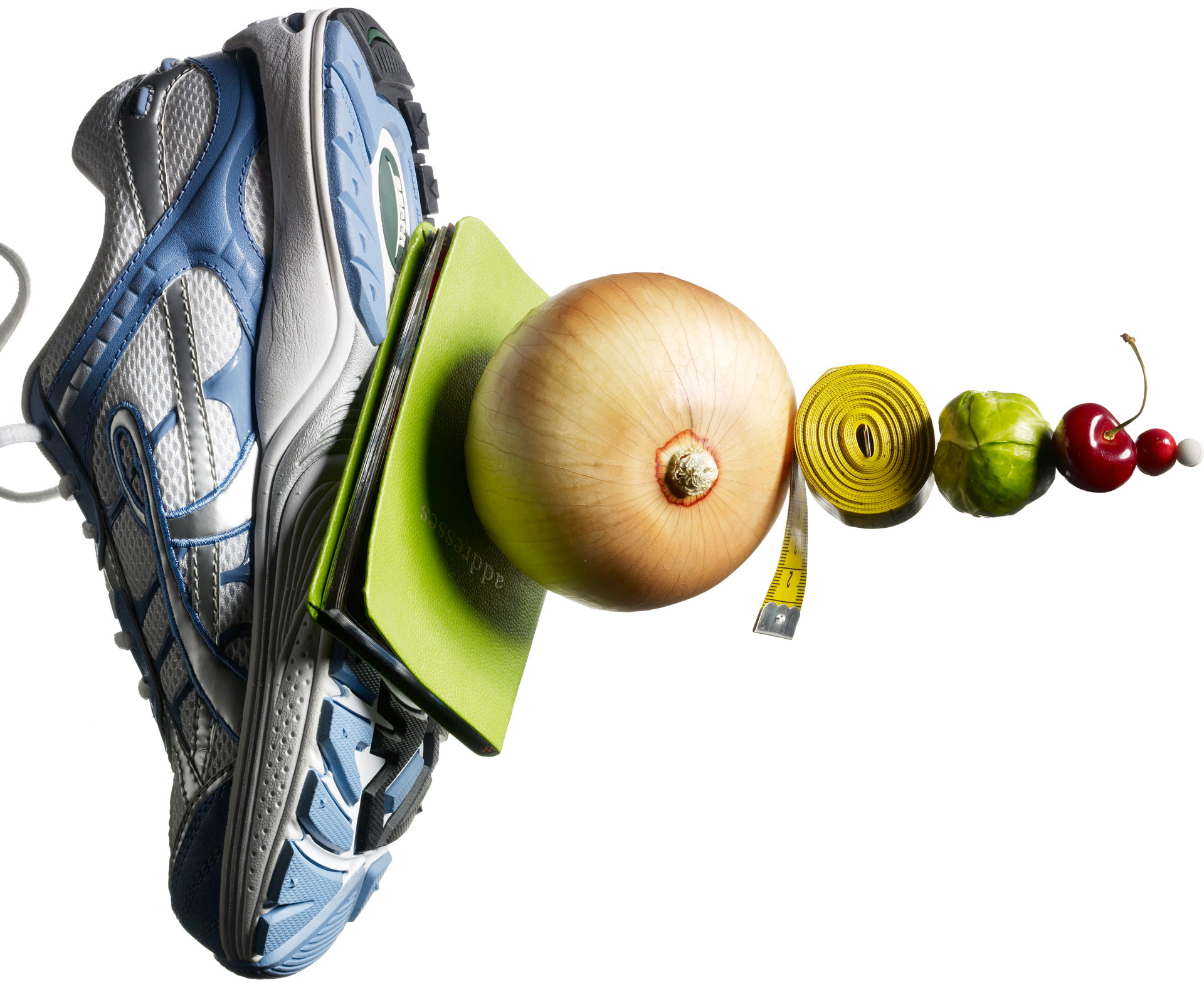When it comes to health and wellbeing advice, we seem to have hit information overload. There are so many ‘experts’ telling us how to live a happy and healthy life and how if we drink green smoothies out of a Mason jar we will be glowing and beautiful just like them.
It doesn’t help that every week there’s a new study condemning certain foods to your nearest rubbish bin, then the next week another one is praising the exact same product as a super food! Most important: are chocolate and red wine good for us or not!?
What you think:
In an effort to better understand Kiwis’ thoughts on wellbeing, Sovereign, one of the country’s leading health insurance providers, embarked on a healthy living survey. The findings were based on responses from 1655 New Zealanders, aged 25-74, both male and female.
So where does your personal view on health and wellbeing fit within the national survey? The results may surprise you. According to the study, more than half of those surveyed believed, as a nation, we are not very healthy. Only 25% were ‘happy with their weight’, with 53% wanting to lose a little and 19% wanting to lose a lot. The survey shows that most of us want to decrease the amount of sugar/sweets/chocolate/fizzy drink and lollies consumed and increase the amount of vegetables and fruit.
The majority of those surveyed believe ‘state of mind influences your health’, signalling that a more holistic view about health and wellbeing is being adopted. But is it really that simple? Let’s find out.
What to eat:

Personal trainer and nutritionist Ginny McArthur agrees there’s a lot of conflicting information out there and it can be really hard to know where to begin.
“Food is our fuel. Many of us look after our cars better than we look after our own bodies,” she says. “Every cell of who you are, how you look, how you think, how much energy you have, comes directly from what you choose to eat or drink,” she says.
Her philosophy is to eat well 80% of the time, leaving you a 20% window for treats. “It is what you eat most of the time that matters, not what you do every now and then. It’s all about finding the right balance.”
McArthur eats little and often to keep her metabolism fuelled and blood sugars even. She finds that helps get her through the typical mid-afternoon slump. She says it doesn’t really matter if you eat six small meals a day or three larger ones, as long as you are meeting your energy and nutritional requirements. So, what are they? Protein, carbohydrates, fat, water, fibre, vitamins and minerals are what we all need for optimum health. How much of each depends on age, gender, weight, height and activity level.
Here’s an example: A 35-year-old woman, weighing 65kg and measuring 168cm, who is active three days a week, needs roughly 2000 calories daily to maintain her weight. That should be made up of 104g protein, 60g fat, 220g carbohydrates, at least 800mg calcium, 12mg iron, 12mg zinc, 28g fibre and 2 litres water. Comparatively, a 50-year-old woman weighing more than 90kg who isn’t active and is wanting to lose weight would benefit from having between 1350 and 1500 calories a day. That should be made up of about 90g protein, 30g fat, 1000mg calcium, 12mg iron, 12mg zinc, 28g fibre, and 2.5-3 litres water.
Protein
This is very important because it builds and repairs tissue, hair, skin and nails. Quality lean protein comes from animal foods and produce; primary sources are lean meat, fish, eggs and low-fat dairy as well as non-animal proteins such as nuts, seeds, legumes, soy and some grains.
Carbohydrate
These are our body’s preferred fuel for energy. Our body uses carbs to fuel our muscles and also our brain. “The brain is very greedy,” says McArthur. “About 20% of our daily calorie requirement goes to fuel it, and it prefers to use glucose from carbohydrates for fuel, which is why if you have ever done a high protein, low carb type diet you will have felt a bit slow and foggy brained!” Useful carbohydrates like grainy breads, brown rice, quinoa and kumara are your friend, not refined white carbs which give us a sugar rush with little nutrient value.
Fat is no longer a dirty word in the world of nutrition. Our bodies use fat for cell membranes and some hormones and it keeps our skin glowing and hair shiny. Most of our fat should come from sources like nuts, avocado, olives and oily fish, says McArthur. “There is nothing wrong with a little butter but moderation is key.”
Water
This is absolutely essential for health – 70% of our bodies are made up of it after all! Water turns our food into energy and being dehydrated can slow your metabolism down by about 100 calories a day. McArthur recommends eating some protein at every meal to keep you feeling full and your blood sugars level. It slows the release of sugars from carbohydrate foods into your blood stream, which helps to keep your energy levels up for longer.
Breakfast.
We have heard it all before but it seems it’s true; breakfast really is the most important meal of the day. McArthur says eggs are a great source of protein in the morning. “Up to six whole eggs a week is fine, matched with a low GI carbohydrate like grainy toast.”
Cottage cheese on toast with sliced tomato and black pepper or a natural nut butter (peanut, almond or cashew, free of added sugar or additives) on grainy toast are other good choices.
“Cereal is also a great way to start the day, especially for women, as using low-fat milk provides not only protein but a serve of calcium too,” she says. Cereals should be less than 15% sugar, or 20% if they contain dried fruit.
McArthur, along with most other nutrition experts, believes oats are the best breakfast choice hands-down. “Rolled oats contain soluble fibre that soaks up LDL (bad) cholesterol like a sponge and takes it out of the body before it can be re-absorbed by our liver,” she says. Pair oats with blueberries, yoghurt and a little LSA (ground linseed, sunflower and almond) for the perfect breakfast.
Snack-wise
A piece of fruit with a protein such as a handful of almonds works well. Alternatively try vege sticks with hummus, or yoghurt and fruit. “Almonds are high in fibre, and we need about 28g of fibre a day. They’re also good for calcium, but beware an extra handful or two; calorie wise you might as well have had a couple of chocolate bars!” McArthur warns.
Lunch:
Should be packed with veges. We should be eating four to seven handfuls of fibrous veges a day, which is quite a lot! “Vegetables are nutritional powerhouses and so protective of everything from cancers, to heart disease to diabetes,” McArthur explains.
“New Zealand Caucasian women have one of the highest rates of gastrointestinal cancers in the world. Protect yourself by eating lots of these low calorie but high anti-oxidant plant foods.”
She suggests a small tin of pink salmon as your protein with a baked kumara.
“Kumara is a low GI carbohydrate; it’s like a pre-historic potato! Releasing its sugars slowly, it contains fibre and beta-carotene that the body converts to vitamin A,” she says. Throw in a couple of handfuls of salad, coleslaw, leftover stir-fry or steamed veges and you have got yourself the perfect nutritional lunch.
Other low GI, low carb options include chicken with brown rice and veges, tuna (two-three times a week only, because of the mercury levels), quinoa and veges, cottage cheese in a wholemeal pita pocket with salad, or falafel in wholegrain wraps with salad.
To avoid over-eating in the evening, it’s a good idea to have an afternoon snack like a smoothie with the kids when they get home from school, or a low-fat cheese like edam or feta with a wholewheat cracker, celery sticks with peanut butter, or walnuts with fruit and cheese.
Dinners
For most should be smaller, McArthur urges. “If we eat enough during the day, we don’t need to overload our stomach right before we go to bed,” she says. “Remember when your stomach is empty it’s only the size of your fist!” She also points out that your body repairs itself when you sleep and it needs the blood flow to be out in your muscles, not in your digestive tract working on dinner.
An ideal dinner plate would be one quarter protein – a palm-sized portion of meat, beans or legumes, three quarters of fibrous veges, and, if you are very active, a quarter of your plate could be a low GI carb like brown or basmati rice or kumara.
“If dinner is early, then some yoghurt with berries or a few squares of dark chocolate makes a great supper to finish off your day,” she says.
In conclusion:
Women especially put a lot on their plates and get so caught up in the busy-ness of life, we’re in danger of forgetting the whole essence of being alive. Worry and stress are no good for our health either, so stressing that you had to get takeaways for dinner is pointless. If you truly care about your health, just make sure you eat well the rest of the week. And about that chocolate and red wine question – everything in moderation. But you knew we were going to say that anyway!
Words by: Kristina Rapley
Photographs by: Levi Brown and Stewart Shining / trunkarchive.com


.jpg)